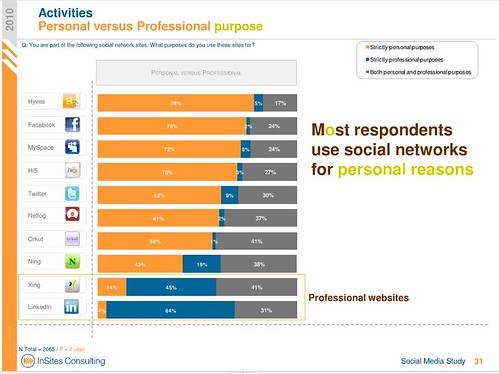Fredrik Reinfeldt, the Swedish Prime Minister, held a speech on February 26, 2008 to students at the The London School of Economics and Political Science. The theme was “The New Swedish Model: A Reform Agenda for Growth and the Environment”. When I read through the speech I was somewhat baffled by the following comment in the introduction:
“It is a pleasure to be here at LSE. Anybody who wants to study globalisation should start at this institution. I believe you have the highest proportion of international students in the world.
And you are smart.
I am told that you borrow four times as many books as the average UK student. Obviously you do not spend too much time on
Facebook
YouTube
MySpace”
So, books=smart and social networks=not as smart? Books are obviously important in education, that’s a no-brainer, but social networks aren’t necessarily just a distraction. They are great tools if you want to build a network of contacts, participate in a community and explore new technologies, business models and ideas. In a networked world you have to be connected.
If Sweden is going to stay competetive in an increasingly integrated world economy we need to participate where new ideas emerge. I believe that Sweden is a net exporter of both music and film and I can see no reason why we should not be able to have the same position in the social media space.
In Reinfeldt’s own words: “Sweden must therefore be a country that better accommodates those who dare to take risks, develop their ideas and spread their wings to become self-employed.”
Some of the smartest people I know are participating in this new arena, and of course, I think they’ve read a few books too. Besides, remember that Facebook initially was restricted to students of Harvard and soon expanded to all Ivy League schools including MIT and Boston University.
Maybe I am excessively positive, but I’ll take that chance. Social networks can of course be huge productivity thiefs, but it’s more complicated than that. Instead of assuming that social networks are just a form of procrastination, we should encourage Swedes to participate in this new landscape so that we will become the most networked people on the planet. If we do that, I am sure many great new companies will emerge.
Footnote: The LSE network at Facebook has 19,698 members. I haven’t found the total number of students (or alumni) at the school, but it sure sounds a lot to me.
Tags: social media, lse, facebook, sociala medier, reinfeldt, fredrik reinfeldt, facebook. Ping.



